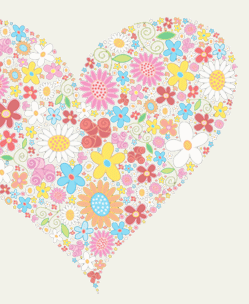 The genuine desire to take care of becoming more conscious in your life is not a goal for the fragile person. It takes strength, support and discipline.
The genuine desire to take care of becoming more conscious in your life is not a goal for the fragile person. It takes strength, support and discipline.
It is not a hobby or a treat, like going to a spa. It is a commitment to the deepest part of yourself — a desire for a profound inner awakening of your gifts and talents.
Inner transformation is a huge challenge. You shed old ways of doing the quick and easy things that soothe yourself in the moment, and create new ways that support your soul’s deepest desire.
Self-care vs. Self-Indulgence
Okay, so maybe you don’t skip the wine and go for the herbal tea every time you’re tempted to indulge.
But do you ever wish you could exercise a little discipline every now and then in the name of self-care?
The difference between Self-Care and Self-Indulgence
There’s nothing wrong with a little self-pampering every now and then. That could mean treating yourself to an expensive box of dark chocolates or using your credit card for a spontaneous weekend getaway.
Delighting in life’s little luxuries can be a source of pleasure – that is, if you can afford them.
Advertisers love the term “self-care.” They tell us we deserve to have the best. After all, you’re worth it.
But when does self-care venture into overindulgence territory?
Self-care means choosing activities that help to balance us physically and/or emotionally. It contributes to our overall well-being and highest goals for ourselves.
Sometimes self-care does not feel good in the moment. It is the rare person who would rather savor the taste of a nice, healthy salad over their favorite dessert.
Self-indulgence is avoiding the work that is going to help us in the long run by substituting quick and easy fixes.
Self-indulgence behaviors seem like they are going to help us deal with stressors. But many of the ways we practice self-indulgence actually tax our physical and emotional systems further.
We tell ourselves that the stresses of the day have drained our energy and that vegging on the sofa is all we can expect of ourselves. Keeping ourselves running at a break-neck pace can seem like self-care too. After all, we are earning money for our family, doing volunteer work to make the world a better place, helping out a friend, working out, growing organic vegetables, composting, doing our part. But staying busy is often a way we avoid taking care of ourselves.
Sometimes we have to kick-start ourselves to start down the road to self-care. But the energy expended on self-care is an investment in our future.
Self-care gives back more than you put in. Self-indulgence takes away more than it gives.
When you exercise regularly, you have more energy through-out the day.
Self-care behaviors include:
exercising, eating healthy foods, getting enough sleep, practicing yoga or meditation or relaxation techniques, journaling, abstaining from substance abuse, pursuing creative outlets, finding supportive friends, engaging in psychotherapy.
How to know what’s right for you
Caring for yourself takes time and thought. You have to get to know yourself.
- Ask yourself “Does this activity/behavior help me to know myself and my needs/desires?”
- “Am I doing this activity/behavior to soothe myself now at the expense of how it might make me feel later?”
- Make a list of your go-to activities/behaviors when you have had a hard day.
- Make a list of some affordable self-indulgences. (Self-indulgence is not always a bad thing…if you can afford it and it does not take away from your overall well-being, go for it!).
- Make a list of some ways you intend to practice self-care this year (see the above-mentioned list).